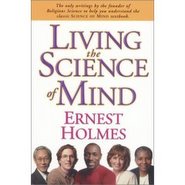"It may be difficult to imagine a religious phenomenon more diverse than modern day Christianity. There are Roman Catholic missionaries in developing countries who devote themselves to voluntary poverty for the sake of others, and evangelical televangelists who run twelve-step programs to ensure financial success. There are New England Presbyterians and Appalachian snake handlers. There are Greek Orthodox priests committed to the liturgical service of God, replete with set prayers, incantations, and incense, and fundamentalist preachers who view high-church liturgy as a demonic invention. There are liberal Methodist political activists intent on transforming society, and Pentecostals who think society will soon come to a crashing halt with the return of Jesus. And there are the followers of David Koresh – still today – who think the world has already started to end, beginning with the events at Waco, a fulfillment of prophecies from Revelation. Many of these Christian groups, of course, refuse to consider other such groups Christian.”
“All this diversity of belief and practice, and the intolerance that occasionally results, makes it difficult to know whether we should think of Christianity as one thing or a lot of things, whether we should speak of Christianity or Christianities.”
“What could more diverse than this variegated phenomenon, Christianity in the modern world? In fact, there may be an answer: Christianity in the ancient world. As historians come to realize, during the first three Christian centuries, the practices and beliefs found among people who called themselves Christian were so varied that the differences between Roman Catholics, Primitive Baptists, and Seventh-Day Adventists pale by comparison.”
"We do not have any of the "originals" of any of the books that came to be included in the New Testament, or indeed of any Christian book from antiquity. What we have are copies of the originals or, to be more accurate, copies made from copies of the copies of the copies of the originals. Most of these surviving copies are hundreds of years removed from the originals themselves."
"Pages and entire books were lost. Indeed, it is not until the fourth century, nearly three hundred years after the New Testament was written, that we begin to get complete manuscripts of all of the books"
"We currently know of 5400 Greek copies of all or part of the New Testament, ranging from tiny scraps of a verse or two that could sit in the palm of your hand to massive tomes containing all twenty-seven books bound together.”
“I should empathize that it is not simply a matter of scholarly speculation to say that the words of the New Testament were changed in the process of copying. We know they were changed, because we can compare these 5400 copies with one another. What is striking is that when we do so, we find that no two copies (except in the smallest of fragments) agree in all of their wording. There can only be one reason for this. The scribes who copied the texts changed them.”
“There are more differences among our manuscripts than there are words in the New Testament.”
“Given the enormous number of changes in our manuscripts of the New testament, is there any evidence that the surviving text were ever modified in light of the doctrinal controversies of the second and third centuries? Yes, there is abundant evidence; sometimes just in the places you might look for it. As I have indicated, almost all of this evidence involves proto-orthodox changes in the text.”
Lost Christianities ~ Bart D. Ehrman
Sunday, July 23, 2006
Subscribe to:
Post Comments (Atom)




No comments:
Post a Comment